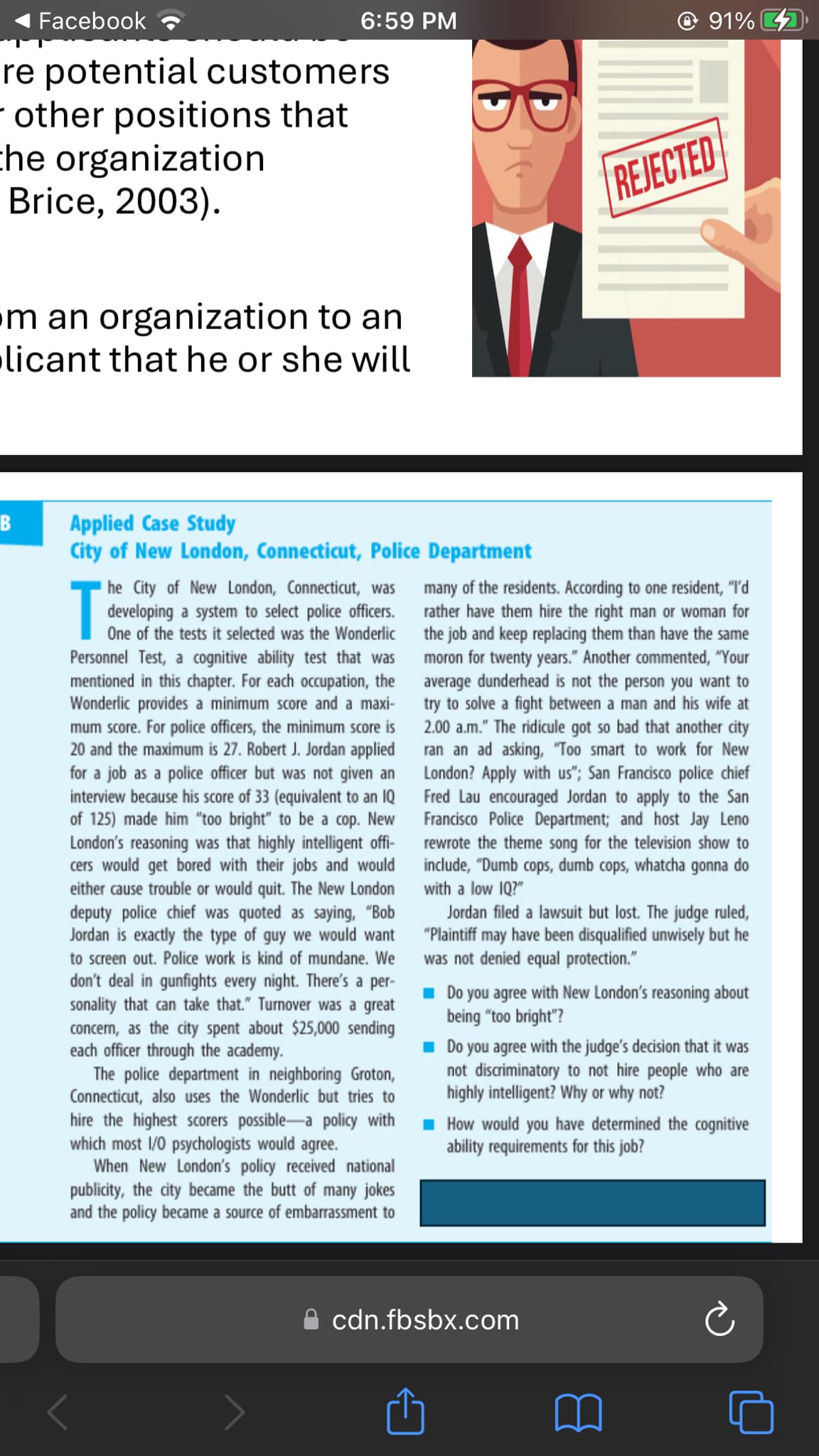Do you agree with New London's reasoning about being 'too bright'? Do you agree with the judge's decision that it was not discriminatory to not hire people who are highly intellige... Do you agree with New London's reasoning about being 'too bright'? Do you agree with the judge's decision that it was not discriminatory to not hire people who are highly intelligent? How would you have determined the cognitive ability requirements for this job?

Understand the Problem
The image contains a case study about the employment practices of the City of New London, Connecticut. It discusses the use of the Wonderlic test for selecting police officers, particularly in relation to candidates' intelligence and the implications of being considered 'too bright' for the job. The questions at the end ask for opinions on New London’s reasoning, the judge's decision regarding hiring practices, and how to determine cognitive ability requirements.
Answer
The reasoning seems speculative and the decision appears discriminatory; focus on job-specific requirements.
New London's reasoning that highly intelligent officers might be dissatisfied and leave due to boredom is speculative. Not hiring based on intelligence appears discriminatory, as high intelligence doesn’t necessarily correlate with job dissatisfaction. For cognitive ability requirements, focus on job-specific skills relevant to performance rather than a broad intelligence cutoff.
Answer for screen readers
New London's reasoning that highly intelligent officers might be dissatisfied and leave due to boredom is speculative. Not hiring based on intelligence appears discriminatory, as high intelligence doesn’t necessarily correlate with job dissatisfaction. For cognitive ability requirements, focus on job-specific skills relevant to performance rather than a broad intelligence cutoff.
More Information
Setting cognitive requirements should align with the actual challenges and problem-solving needs of the role. Intelligence levels should not automatically disqualify candidates without clear evidence of job performance impact.
Tips
A common mistake is assuming intelligence directly correlates with job dissatisfaction without evidence.
AI-generated content may contain errors. Please verify critical information